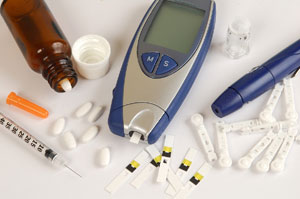Wow it’s some time since I last posted! I initially took a break because September is the time I go on vacation to my home country for a couple of weeks, but it’s been awhile since then and I have no other excuses…
Wow it’s been awhile since I last posted! I initially took a break because September is the time I go on vacation to my home country for a couple of weeks, but it’s been awhile since then and I have no other excuses…
Speaking about travel, I’m so glad I never had to deal with diabetes related issues. I think only once I had somebody object to the fact that I was trying to take insulin on a plane without a doctor’s certificate. I forget where that was, but it caught me by surprise because, of course, I felt entitled to be able to bring anything diabetes related on a plane, but apparently the airport personnel thought otherwise…In the end I was able to pass through security with all my supplies, but it was thanks to an old doctor’s letter that apparently I had kept in my thermal container. The experience did tick me off, but now I always try to bring something from my doctor, just in case. Especially when I come back to the US because I bring a lot of insulin (I’m talking quite a few boxes), so I guess that could look suspicious. But most of the time people are pretty decent about it, even though they do the checks they are required to do.
Now that I wear an insulin pump I already know that it will take me longer to pass through security: I just wait for them to first stop my bag and ask if it’s mine, then they take me to that special place where they pat you down like a criminal, with legs spread open and all, fun times. Quite a few times I have been asked if I could remove my pump (sure, I just wear it for fun), and when I explain that I can’t they make me touch it and then they test my hands for bomb making substances. To top it off there is the part where I have to try and close the carry on that I took so long to pack. After having it inspected and all its contents moved around, it’s practically impossible to close it again. So that makes it so much more interesting…but I’ve learned to live with that too, and my husband knows to just go and wait to the side while all this happens. Let the adventure begin!




